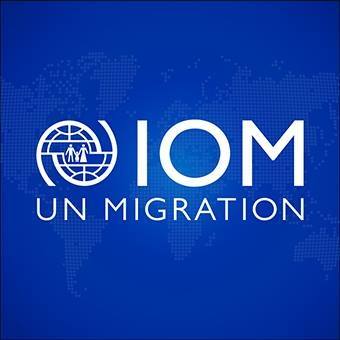
International Organization for Migration - Sri Lanka & Maldives
9th Floor, Institute of Bankers of Sri Lanka Building, No. 80A, Elvitigala Mawatha, Colombo 08 Colombo, Sri Lanka
Sri Lanka became a Member State of IOM in 1990 and IOM established its presence in the country in 2002. The IOM Sri Lanka Mission currently counts over 100 staff distributed among its Head Office in Colombo, Inbound and Outbound Migrant Health Assessment Centres & an Operations Centre in Colombo, and four Sub-Offices located in Jaffna, Kilinochchi and Batticaloa.
A decade after the end of a 30 year armed conflict, Sri Lanka transitioned to an upper middle income country in July 2019. As such, Sri Lanka’s efforts as a nation have moved from short-term emergency response and conflict resolution to the challenges and opportunities of long-term development. IOM’s focus of work in Sri Lanka has shifted from meeting humanitarian needs in the former conflict areas of the North and East, towards addressing long-term sustainable development goals across the country.
Against this background, the IOM Sri Lanka mission has recently taken stock of migration opportunities and challenges the country faces and has prioritized key areas of cooperation and cross-cutting approaches to pursue its strategic objectives as detailed in the IOM Country Strategy 2018-2020.
IOM in Sri Lanka works in close partnership with national and local government institutions, non-governmental agencies, grass-roots, community organizations and the donor community, to address emerging issues, needs and priorities of the Sri Lankan Government, migrants, partners, and Member States.
WHO WE ARE
Founded in 1951, the International Organization for Migration (IOM) provides services and advice to governments and migrants. With 174 Member States, IOM continues to expand its scope of activities to address the evolving migration challenges by providing a comprehensive set of responses to complex migration issues at the operational and policy level.
IOM is part of the UN System in Sri Lanka and formally became a United Nations related Organization at the UN General Assembly in September 2016.
Sri Lanka became a Member State of IOM in 1990 and IOM established its presence in the country in 2002. The IOM Sri Lanka Mission currently counts over 100 staff distributed among its Head Office in Colombo, Inbound and Outbound Migrant Health Assessment Centres & an Operations Centre in Colombo, and three Sub-Offices located in Jaffna, Kilinochchi and Batticaloa.
WHO WE WORK WITH
The Government of Sri Lanka
Ministry of:
Agriculture
Mahaweli Development and Environment
Women and Child Affairs
Defence
Finance
Disaster Management
Education
Foreign Affairs
Fisheries and Aquatic Resources Development
Foreign Employment
National Policies and Economic Affairs
Health, Nutrition and Indigenous Medicine
Ports and Shipping
Irrigation and Water Resources Management
Justice
Internal Affairs, Wayamba Development and Cultural Affairs
Law and Order and Southern Development
Transport and Civil Aviation
National Co-Existence, Dialogue And Official Languages
Prison Reforms, Rehabilitation, Resettlement and Hindu Affairs
National Integration & Reconciliation
Public Administration and Management
Tourism Development and Christian Religious Affairs
Traditional Industries and Small Enterprise Development
Youth Affairs and Skills Development
The United Nations in Sri Lanka
Donor Countries:
Australia
Canada
China
The European Union
Greece
Japan
Netherlands
Norway
Poland
Portugal
South Korea
Sweden
Switzerland
The United Kingdom
United States of America
Diplomatic Missions:
Embassy of Italy in Sri Lanka
New Zealand Consulate General in India
Other Stakeholders:
Private Sector
Non-Governmental Organisations
Community-Based Organisations
Academia and Research Institutions
WHERE WE WORK
The IOM Sri Lanka Mission currently counts over 100 staff distributed among its Head Office in Colombo, a Migrant Health Assessment Centre and an Operations and Migrant Services Centre (both also located in Colombo), and three sub-offices located in Jaffna, Kilinochchi and Batticaloa.